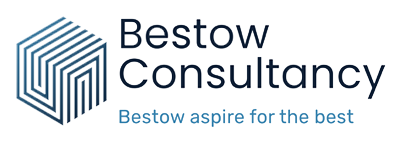Brand Protection
- Trademark Application Acknowledgement (One TM Class)
- Brand and Logo Protection
- Power of Attorney
- Regular Status Check & Updation
- Free Customer Support
Trademark registration is the process of legally registering a trademark with a government agency in order to protect the unique brand identity of a business or product. A trademark is a symbol, logo, design, phrase, or word that is used to identify and distinguish a particular product or service from those of others.
By registering a trademark, a business can establish exclusive rights to use the trademark for a specific set of goods or services, and can take legal action against anyone who uses the trademark without permission. Trademark registration also provides a more secure form of legal protection compared to common law trademark rights, which are acquired through use of the trademark in commerce.
Trademark registration is usually done at the national level, with each country having its own trademark office and set of regulations. In many countries, including the United States and the European Union, trademark registration is done on a first-come, first-served basis, meaning that the first person to use a trademark or to apply for registration has the priority over others who might use the same or similar trademark.
Trademark registration can be a complex process and it is advisable to seek the assistance of a trademark attorney to ensure that the trademark is properly registered and protected.
- Free consultation with Copyright Expert
- Copyright Registration
- Drafting of documents
- Free Customer Support Note: In case of objection raised by deptt. the cost of reply will be born by clients only
Copyright registration is the process of legally registering a work with a government agency in order to establish proof of ownership and to protect the rights of the creator of the work. Copyright is a form of legal protection that covers original works of authorship, such as literature, music, software, photographs, and other creative works.
By registering a work with the copyright office, a creator can establish a public record of their ownership of the work, and can take legal action against anyone who infringes on their rights. Copyright registration also provides the creator with certain exclusive rights, such as the right to reproduce the work, distribute copies, and display the work publicly.
Copyright registration is usually done at the national level, with each country having its own copyright office and set of regulations. In many countries, including the United States and the European Union, copyright is automatically granted as soon as a work is created and fixed in a tangible form, without the need for formal registration. However, copyright registration can provide additional legal protection and can make it easier to enforce copyright in the event of infringement.
Copyright registration can be a complex process, and it is advisable to seek the assistance of a copyright attorney to ensure that the work is properly registered and protected.
- Free consultation with Patent Expert
- Patent Registration
- Drafting of documents
- Free Customer Support
Patent registration is the process of legally registering an invention with a government agency in order to protect the rights of the inventor and to establish a public record of ownership. A patent is a form of legal protection that gives the inventor the exclusive right to prevent others from making, using, selling, or importing an invention for a certain period of time.
By registering a patent, the inventor can establish their ownership of the invention and can take legal action against anyone who infringes on their rights. Patent registration also provides a public record of the invention, which can be used to demonstrate prior art and prevent others from obtaining a patent for a similar invention.
Patent registration is usually done at the national level, with each country having its own patent office and set of regulations. In many countries, including the United States and the European Union, a patent is granted to the first person to file a patent application for an invention, provided that the invention is new, non-obvious, and useful.
Patent registration can be a complex process, involving a thorough search of existing patents, a detailed description of the invention, and an examination of the patent application by the patent office. It is advisable to seek the assistance of a patent attorney to ensure that the patent application is properly prepared and to navigate the legal requirements for obtaining a patent.

